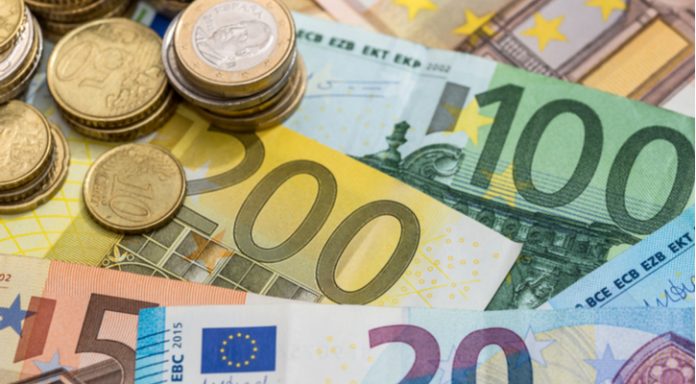- Pound (GBP) is rising despite falling house prices
- Hawkish BoE supports prices
- Euro (EUR) falls after weak German industrial output
- ECB Christine Lagarde to speak
The Pound Euro (GBP/EUR) exchange rate is rising after losses yesterday. The pair fell -0.05% in the previous session, settling on Thursday at €1.1698 and trading in a range between €1.1674 – €1.1739. At 09:35 UTC, GBP/EUR trades +0.09% at €1.1720.
The euro is falling after German industrial production unexpectedly declined in May, highlighting the uphill struggle that the German economy continues to face. German industrial output fell 0.2% in May compared to the previous month after rising 0.3% in April. Analysts forecast that output would stagnate.
The data was a reminder of the struggle that Europe’s largest economy is facing as it tries to shake off a recession. However, it wasn’t all bad news. Yesterday’s German factory orders unexpectedly jumped by 6.4% month on month, fueling some optimism towards the sector.
Yesterday eurozone retail sales data also disappointed, stagnating at 0% for a second straight month, defining expectations of a 0.2% rise. Spending on non-food, the data highlights the struggles that households are facing amid high inflation and rising interest rates.
Looking ahead, there is no more data due today for the region, but ECB president Christine Lagarde is due to speak. Hawkish comments regarding the outlook for interest rates could help base the euro.
The pound is rising as investors shrug off data that says that UK house prices suffered the worst annual decline in over a decade as the ongoing mortgage crisis takes its toll.
House prices declined by 2.6% in June after falling 1.1% in May, taking average house prices in the UK to £285,932.
The pound remains supported by expectations that the Bank of England will continue hiking interest rates in order to tame inflation which remains sticky at 8.7%. The market is expecting the Bank of England to hike interest rates to over 6.5%, a move that could also tip the UK economy into recession.





